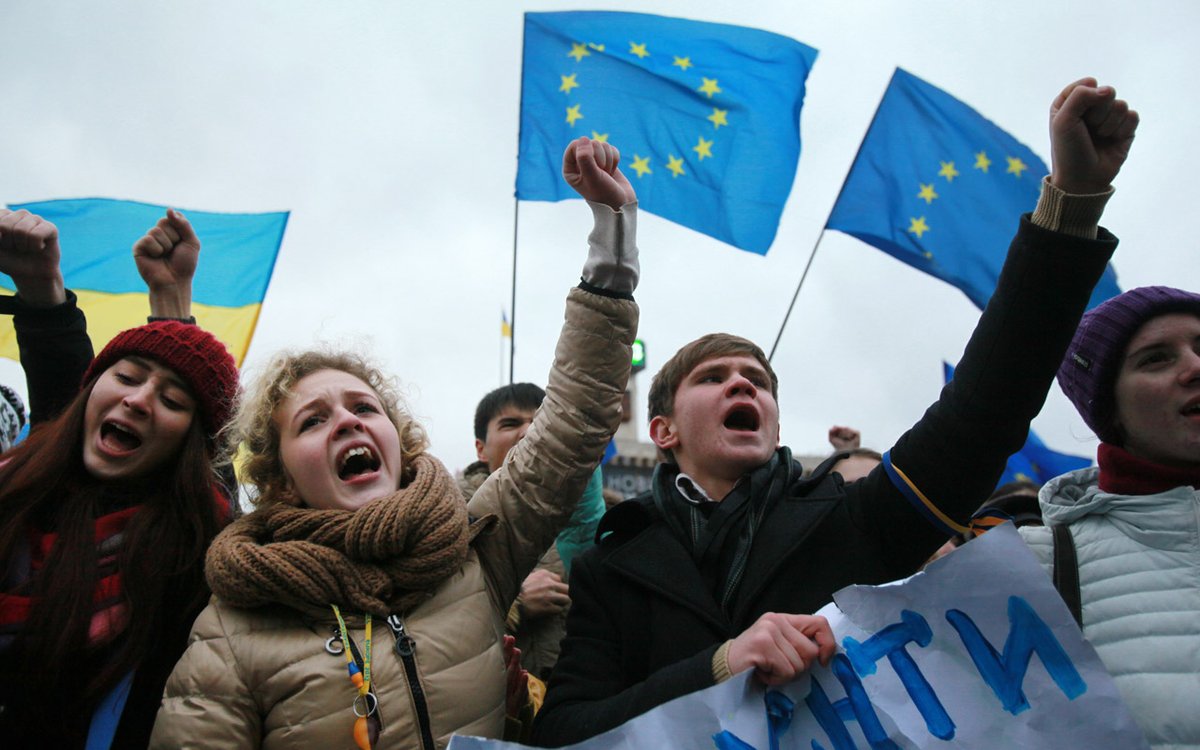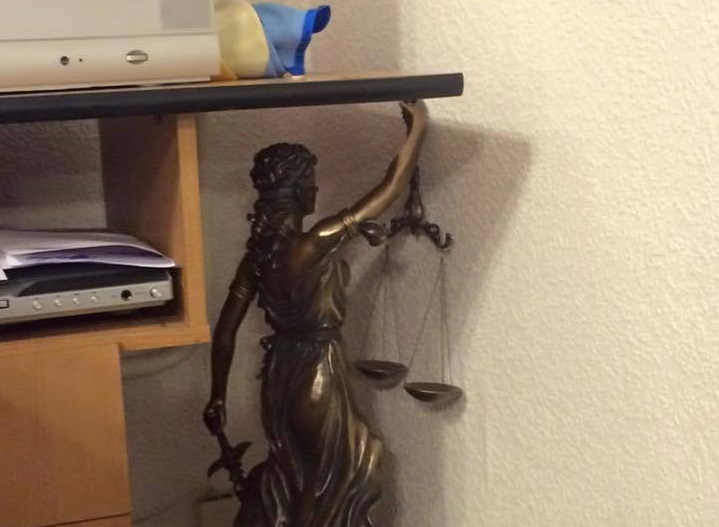Some observers were convinced that this was a purposeful action planned at the highest level to suppress all political opponents; others argued that the former leaders of Ukraine were simply puppets coordinated by Moscow.
For many people, the word “Berkut” remains synonymous with punitive and violent law enforcement units. Others believe that Berkut employees were used as pawns in a complex political game.
“Today, I can’t say that we’re 100 per cent sure of what actually happened, and how and why it happened that night on the Maidan.” says Serhiy Horbatyuk, Head of the Special Investigation Department of the General Prosecutor’s Office of Ukraine.
“Today, we’ve gathered evidence that allows us to suspect certain individuals in the organization and execution of these beatings, but some specific questions have arisen directly during the investigation, so we continue working and investigating.”
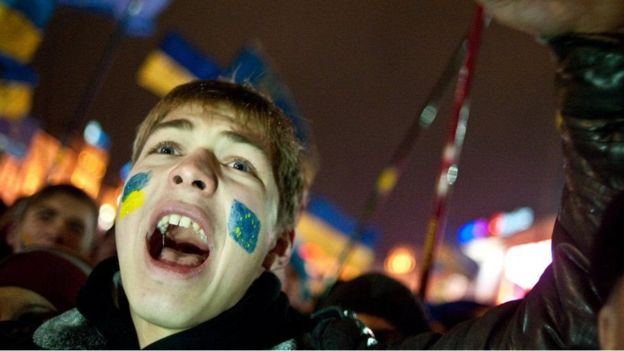
In the evening of November 29, 2013, several hundred activists decided to remain on Independence Square to protest Yanukovych’s refusal to sign the Association Agreement between Ukraine and the EU. By 4 a.m., they had been violently and brutally dispersed.
“We have information that allows us to suspect that this happened on Yanukovych’s instructions.” says Serhiy Horbatyuk.
According to the investigation, the following persons are involved to some extent in organizing the violent dispersal of activists on the Maidan: former Secretary of the National Defence and Security Council Andriy Klyuyev, his deputy Volodymyr Sivkovych, Interior Minister Vitaliy Zakharchenko, his deputy Serhiy Ratushniak, and the Head of the Kyiv police Valeriy Koryak. All five are on Ukraine’s wanted list.
“As for certain details, such as the motivation for their actions, the order to use force and violence, we have no definitive answers.” says Horbatyuk.
All the former Ukrainian leaders deny their guilt.
At the end of 2014, Yanukovych stated that he had “quite good reasons and substantial evidence” to suspect the head of his own administration, Serhiy Lyovochkin, in the violent dispersal of protesters on the Maidan. Lyovochkin’s name was also mentioned by former Interior Minister Zakharchenko and ex-chief of the Kyiv police Koryak.
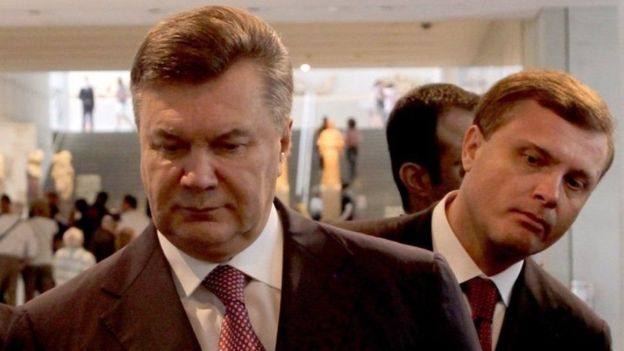
“If Yanukovych is so convinced of his own innocence, let him come to Kyiv and explain who was in charge and who gave the orders at the National Defence and Security Council and the Interior Ministry.” said Lyvochkin, who is now an MP and one of the leaders of the Opozytsiyny Bloc party.
The investigation has also named former Head of the Kyiv Municipal Administration Oleksandr Popov as an accomplice in the dispersal of the protesters.
It was on his instructions that municipal employees took over the Maidan that night, supposedly to install Kyiv’s Christmas tree. These “sylovyky” (literally “persons of force”=security service personnel) arrived to “ensure public order and transport of technical installations”.
Popov regularly attends court hearings and does not deny that he gave instructions to municipal employees. But, he claims that he didn’t know anything about the dispersal or the attacks and condemns them.
Another question in the reconstruction of the events that night, says Serhiy Horbatyuk, is the situation with 20-30 young people, who shortly before the actual dispersal, rallied not far from the main group of activists, near the monument to the founders of Kyiv.
“They were taunting the police just before the attacks started. They created an aggressive situation and stimulated use of violence. These provocateurs fulfilled their mission and quickly disappeared; they weren’t attacked or beaten.” says Horbatyuk.
He claims that investigators haven’t yet identified any participants of this group, but continue working in this direction.
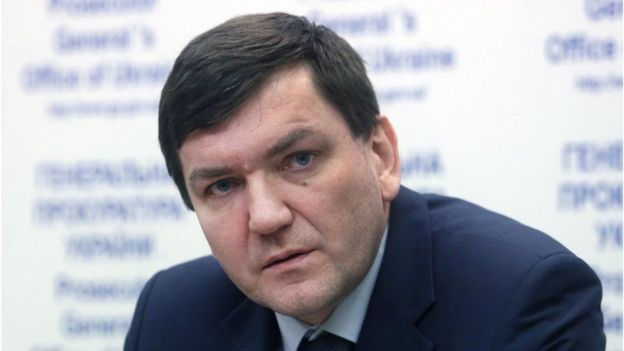
One way or another, about 290 Berkut officers arrived in the centre of Kyiv and quickly cleared the square of activists.
“The complaints filed by individuals concerning injuries inflicted by the police during the conflict will be investigated by our official inspection bureau.” laconically announced spokesperson for the Kyiv police Olha Bilyk next morning (November 30, 2013).
“We’ve identified all the Berkut officers who were on the Maidan that night – 280 or 290 persons, 200 from Kyiv’s Berkut and employees from three other oblasts. But these three units stayed in the back and moved forward when the square was already cleared. According to the investigation, all the violent attacks were carried out by Berkut employees from Kyiv.” says Horbatyuk.
30-40 special ops teams were engaged in the brutal attacks on Independence Square.
According to Horbatyuk, although the names of all the Berkut officers present on the square have been established, it’s still impossible to determine who exactly participated in the actual beatings of the activists. All the officers wore helmets and masks.
“First, we completed the investigation of all the commanders, namely the deputy chief of the Kyiv police Petro Fedchuk, the commander of Kyiv’s Berkut Serhiy Kusyuk (both are on Ukraine’s wanted list, and are reportedly working in the Russian police), two of his deputies and four other Berkut leaders who held a meeting just before the attack.” says Horbatyuk.

During the meeting, any one of these Berkut officers could have clarified whether the court had sanctioned the order for dispersing the protestors… and after obtaining a clear response that there had been no official court sanction, refuse to execute this order.
“However, we’ve decided that these ordinary police officers did not commit a crime during the dispersal. What we must do is specifically identify those who used violence.” says Horbatyuk.
The problems in the investigation continue, because none of the more than 200 Berkut officers have given evidence that might clarify what happened that night.
“Each one could tell us a lot about who used violence and how it was used, but most importantly, was a clear order issued to use extreme violence on the activists?… Not just to disperse them, but to disperse them so brutally that they would never return.” explains Horbatyuk.
All the Berkut officers give standard answers: “There were no orders to use violence; we simply dispersed the crowd. I didn’t see or hear anybody attacking the protestors…”
However, investigators have identified three Berkut officers who allegedly used violence after the dispersal, chasing the activists who had fled from the square.
The case against one of them – Ruslan Marchuk – is currently being heard in Shevchenkivsky Court in Kyiv: Marchuk is accused of attacking journalist Mariya Lebedeva and impeding professional journalistic activity.
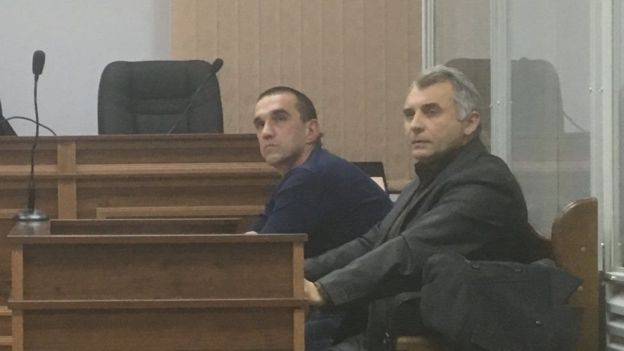
According to Lebedeva, the Berkut officer was not wearing a mask when he tried to strike her and remove her mobile phone, so she was able to recognize him later in a photo lineup.
In an interview with the BBC, Marchuk denied the allegations. He stated that he arrived on the Maidan after the square had been cleared and didn’t see anyone committing any acts of violence.
Serhiy Horbatyuk and the defense lawyers for more than 80 people officially recognized as victims of the Maidan beatings say that the code of silence observed by the former Berkut officers, most of whom continue to serve in the new police force, is a major obstacle to conducting a complete and effective investigation.
Attorney Yevheniya Zakrevska condemns the Berkut officers who may not have used violence against activists personally, but refuse to cooperate with the investigation.
“They didn’t intervene in the events on the night of November 30 and didn’t prevent their colleagues from committing a crime, although this was their direct responsibility. And today, when these crimes have been established, they do nothing to help bring the perpetrators to justice.” she says.
“It would be easier to investigate such cases if these officers knew that punishment was inevitable, if they felt that unless they helped the investigators, they wouldn’t be able to continue working in the police force.” agrees Serhiy Horbatyuk.
Many Berkut officers, who were present on the Maidan that night, have successfully passed the re-certification test initiated by the new government and continue to serve in the new Ukrainian police force.
Former commanders of the Kyiv’s Berkut unit were forced to resign from the police only after a wave of public indignation: it turned out that a year after the Maidan attacks they were still employed in the police force.
Serhiy Horbatyuk complains that there’s no strong political will among political leaders to bring the case of the Maidan beatings to a logical conclusion.
He maintains that the Ministry of Internal Affairs doesn’t support the prosecutor’s request for dismissing the suspected Berkut officers from their positions in the police force, at least while these cases are still being heard in the courts.
Horbatyuk also says that the statements of top Ukrainian officials, including President Poroshenko, that Berkut officers, who are allegedly involved in these crimes, “have washed away their guilt through blood” by fighting in Eastern Ukraine, are wrong and manipulative.
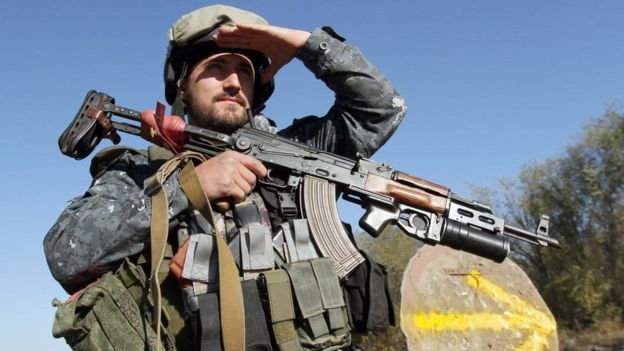
“No one says that fighting in the ATO zone can’t be a mitigating circumstance. But, this should be announced concretely and clearly to all Ukrainians: this man is involved in murder (or beatings) on the Maidan, but he’s been in the ATO zone, so we’re looking into dismissing the charges against him. But, there’s no such thing; we hear only general statements.”
However, Horbatyuk is optimistic and points to the Lithuanian experience that gives him hope for the future.
During the investigation of a massacre near the Vilnius Television Centre in January 1991*, at some point there was a long interval in court proceedings.
“Everything changed after the elections, when the new president set out to tie up these investigations. The entire state apparatus followed suit, there was a strong political will, and in 2014 the investigation was completed.” explains Horbatyuk.
Meanwhile, says Horbatyuk calmly, Ukrainian investigators continue their work…
*As a result of Soviet military actions to “ensure constitutional order and the effectiveness of laws of the Lithuanian SSR and the Soviet Union” (official explanation), 14 civilians were killed and 702 were injured. The events were centered in the capital, Vilnius, along with similar actions in the suburbs and other cities.




